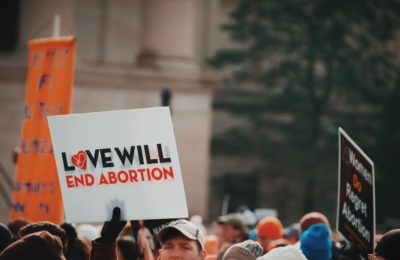There’s a disturbing (and unnoticed) irony underlying the American Civil Liberties Union’s efforts to secure an abortion for J.D.—the unaccompanied minor who illegally entered the United States in September and is now the focus of the federal court system and national media.
As I detailed on Monday, a federal judge ruled last week that the Trump administration’s policy of forbidding refugee shelters from facilitating abortions for alien minors in their custody violates Roe v. Wade and its progeny. District Court Judge Tanya Chutkan, a President Obama appointee, held the policy places “a substantial obstacle in the path of a woman seeking an abortion,” and thus constitutes an “undue burden” on a woman’s right to an abortion under Planned Parenthood v. Casey. Chutkan ordered the government “to transport J.D. — or allow J.D. to be transported by” her court-appointed guardian to obtain an abortion.
On Friday a three-judge panel in Washington D.C. vacated the lower-court’s order and held instead that, so long as the government provides an “expeditious process” to secure a sponsor for J.D., there is no undue burden under Casey. Unfortunately, but predictably, the entire D.C. Circuit Court of Appeals quickly reheard Garza v. Hargan and in a 6-3 split decision held the government was violating J.D.’s constitutional right to an abortion. The en banc court remanded the case to the lower court merely to allow the judge to enter a revised order with a new date for an abortion.
The government will likely seek review before the Supreme Court and likely first move to stay the lower court’s order to prevent J.D. from obtaining an abortion before the high court has an opportunity to review the petition. A motion for a stay would typically be presented to Chief Justice John Roberts, who oversees the D.C. Circuit, but he may refer the question to the entire court.
Feds Didn’t Even Argue Whether Illegals Have U.S. Rights
However, the Supreme Court may well wish to wash its hands of this case: It is one thing to rule abstractly about the right to an abortion. It is another matter entirely for a justice’s vote to condemn one specific innocent unborn baby to death. Avoidance may be the court’s easiest solution, with a simple, unelaborated denial of a motion to stay, followed by a denial of the petition for review.
Should the Supreme Court take this easier route, the federal government’s litigation strategy will bear some of the blame. Here’s why.
In both the district court and the circuit court, the government assumed J.D. had a constitutional right to an abortion and argued it had not deprived her of that right by placing an undue burden on her choice. But as Judge Karen LeCraft Henderson stressed in her dissent to yesterday’s decision by the full D.C. Circuit: “[T]he en banc Court’s decision in effect means that a pregnant alien minor who attempts to enter the United States illegally is entitled to an abortion, assuming she complies with state abortion restrictions once she is here. Although the government has for some reason failed to dispute that proposition, it is not the law.”
Henderson was not alone in highlighting this anomaly. Following the government’s short-lived victory before the three-judge panel of the appellate court, Texas Attorney General Ken Paxton wrote: “We’re disappointed with today’s result from the D.C. Circuit. Unlawfully-present aliens with no substantial ties to the U.S. do not have a right to abortion on demand. Texas must not become a sanctuary state for abortions.”
Paxton was rightly disappointed: While the government did not contest—or accept—the premise that J.D. had a constitutional right to abortion, Paxton, along with the attorney generals from Arkansas, Louisiana, Michigan, Nebraska, Ohio, Oklahoma, and South Carolina, filed an amicus curie, or friend of the court, brief in J.D.’s case. They argued that under United States v. Verdugo-Urquidez, “aliens receive constitutional protections when they have come within the territory of the United States and developed substantial connections with this country.” Because J.D. lacked any connection with the United States, other than her physical presence here when she was detained at the border, the amici argued she lacked a constitutional right to an abortion.
You’re a Person Who Gets Rights So Long As You’re Born
While the D.C. Circuit’s majority opinion sidestepped the issue, Judge Patricia Millett ridiculed the amici’s argument, writing:
Lastly, the amici suggest that J.D. and all others in the United States without documentation are not ‘persons’ entitled to the protections of the Due Process Clause….The implications of amici’s argument that J.D. is not a ‘person’ in the eyes of our Constitution is also deeply troubling. If true, then that would mean she and everyone else here without lawful documentation—including everyone under supervision pending immigration proceedings and all Dreamers—have no constitutional right to bodily integrity in any form (absent criminal conviction). They could be forced to have abortions. They could, if raped by government officials who hold them in detention, then be forced to carry any pregnancies to term. Even if pregnancy would kill the Mother, the Constitution would turn a blind eye. Detainees would have no right to any medical treatment or protection from abuse by other detainees. Those with diabetes or suffering heart attacks could be left to die while their governmental custodian watches.
Ironically, in inventing a constitutional right to abortion in Roe v. Wade, the Supreme Court held that unborn human beings are not “persons” entitled to the protections of the due process clause. To paraphrase Millett: The implications of an argument that an unborn baby is not a “person” in the eyes of our Constitution is also deeply troubling. Under the D.C. Circuit’s view, a girl obtains a constitutional right to an abortion the moment she steps foot across the border, but even a foot outside the womb is not enough to bestow on the partially born baby the protection of legal personhood.
The question remains whether J.D.’s unborn baby will have a chance to become a part of our community. The federal government has made its position clear, as a spokesman for the U.S. Department of Health and Human Services told me Monday night: “For however much time we are given, the Office of Refugee Resettlement and HHS will protect the well-being of this minor and all children and their babies in our facilities, and we will defend human dignity for all in our care.”
How much time? That is now up to the Supreme Court.



